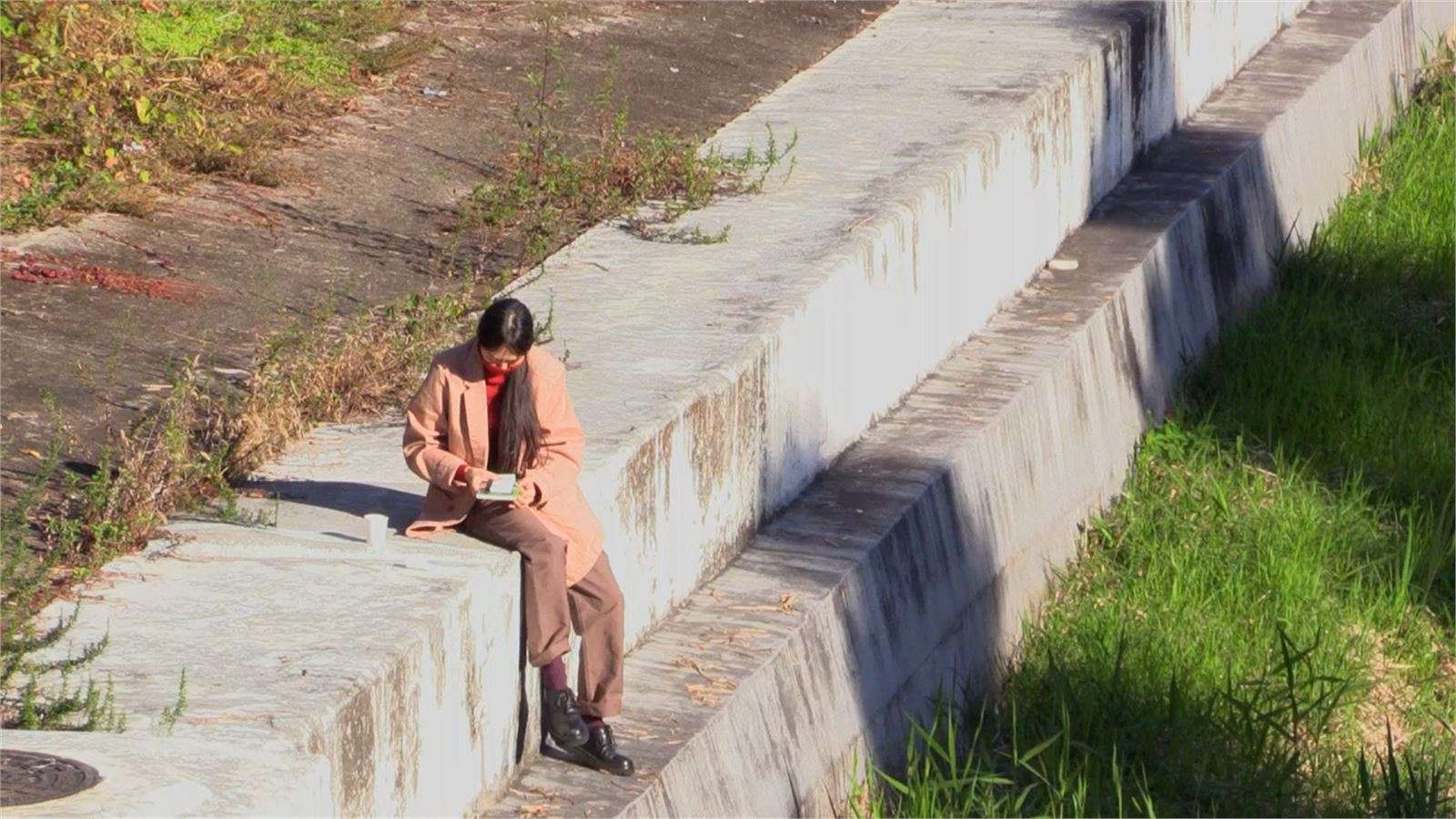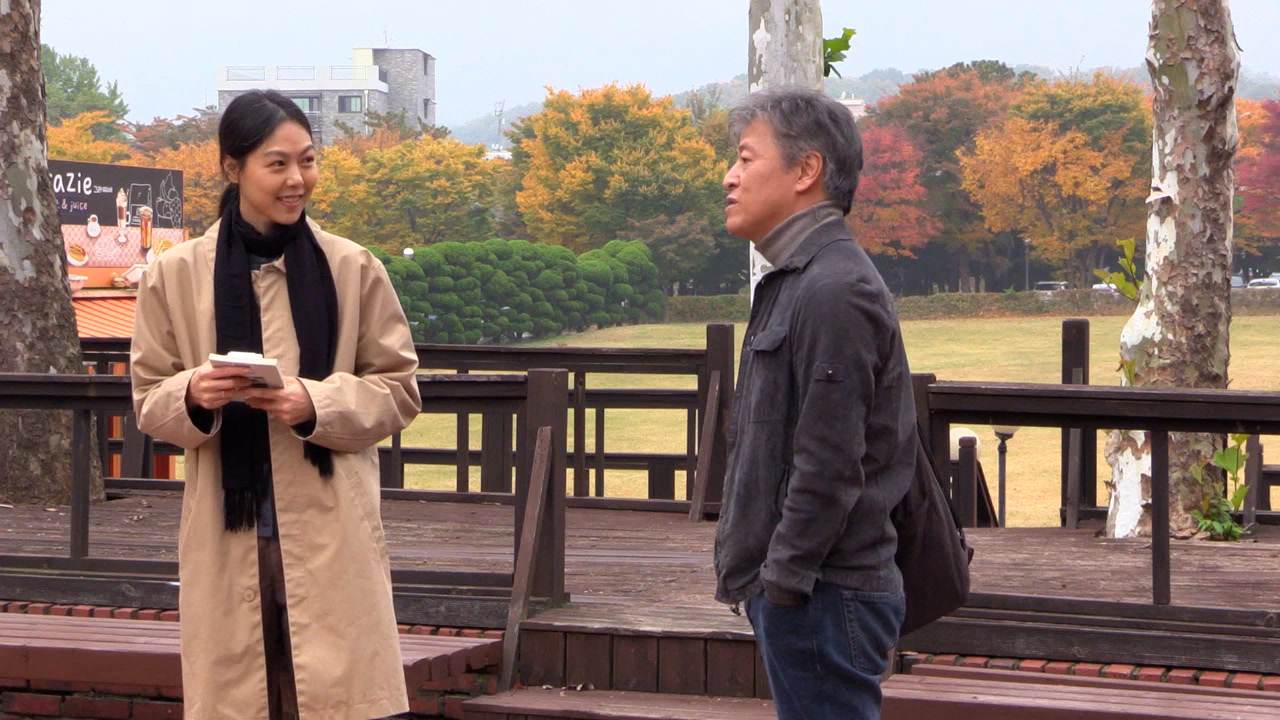They say there are only three certainties in life: death, taxes, and the release of at least one new Hong Sang-soo film each year. In a career marked by extreme prolificness—”By the Stream” is his ninth film to come out this decade, which, need I remind you, is less than halfway through completion—Hong’s directorial approach has equally been marked by its own set of developments coinciding with his personal journey; minor adjustments for anyone just popping in periodically on one of his many features, but for those accustomed to his propensity for self-reflection and jarring zooms, these changes may as well be signs of a whole new artist.
In particular, this new decade seems to have brought with it a more seasoned shade of that contemplative attitude—one that recognizes the internal faults Hong would begin to examine in the previous decade, but with a newfound understanding of the unbendable fabric of life’s linear motion; you can’t undo your past mistakes, so you might as well move forward… but that doesn’t mean the ripples won’t continue to echo across the tranquil path you attempt to forge across the waves.
Normally, owing to his comfort in maintaining a very specific (and true to the self) view of the world, Hong would approach this sort of material from the perspective of a disgraceful/disgraced filmmaker, leaving in no uncertain terms how the director perceives himself on this odyssey of personal growth. “By the Stream” includes such a character—Sieon (Hong regular Kwon Hae-hyo), a former renowned actor-turned-bookstore owner whose vague transgressions seem to cling not far behind like a shadow—but along this journey of personal reflection, Hong once again turns to the female subject of his latest film to make those social challenges tangible.

That subject is, naturally, played by Kim Min-hee, Hong’s longtime muse whose extramarital relationship with the filmmaker led to much scandal in the pair’s homeland, to the point where the actor became something of a local pariah as the “other woman”; since her breakthrough turn in Park Chan-wook’s “The Handmaiden,” Kim has been involved in 12 feature films, all of which were directed by Hong. All of this unfair maligning—not that cheating is acceptable, but celebrities have been offered a second chance for far worse deeds (hello, Chris Brown)—seems to have informed not only Kim’s pained and honest performances in Hong’s work but also the director’s willingness to explore the effect his own carelessness has had upon the lives of the women he’s betrayed.
This brings us to “By the Stream,” in which Kim’s award-winning performance (for her efforts, she earned the Pardo for Best Performance at Locarno) sucks us into the unassuming life of Jeonim, an art teacher at a women’s university who enlists her uncle (the aforementioned Sieon) to take over directing duties for a festival performance (a 10-minute skit) after the original student director was forced to drop out. The cause of this dropout was that he was dating three of the students involved simultaneously—a revelation delivered with such Hong-specific sincerity that you can’t help but chuckle at its embellishment—which already puts us firmly into the director’s mindset regarding the sort of men he’s always been willing to explore, even in the background.

As always, though, the director keeps things close to the ground, as “By the Stream” is far more interested in what these circumstances have to say about the people left to deal with the fallout than the person left behind to wallow in self-pity. Kim’s delicately firm presence keeps the film’s focus where it needs to be, as every sideways glance and acidic line delivery paints an image of a woman who wants to do right by everyone—be they her students, her estranged relative or her mentor who takes an immediate liking to the former TV star she’s long admired—even when this new concoction of participants leaves hints of the same disastrous spillover ready to circle back from around the bend and pollute the purity of the stream she so covets.
In Hong’s world, men are trash—a reality to which he has the experience to attest—and “By the Stream” builds upon his career-long thesis statement by introducing us to his stand-in figure as a largely affable presence; though Sieon is mentioned to have been ousted in some way by his industry, the details are vague and one late conversation hints at political motivation rather than any sort of sexual misconduct. Of course, to counterbalance this new figure, the writer-director utilizes the former student filmmaker as a conduit for our more expected perception of the men in Hong’s oeuvre: a man who legitimately doesn’t understand how cheating on three women simultaneously, all of them colleagues, is in any way worth the extremely mild repercussion he’s faced.
From this contrast, Hong almost seems to be presenting us with some sort of minor musing on generational accountability, as the refusal to properly deal with the mistakes of the past has led to a following breed of man incapable of understanding these newly respected boundaries. The only onscreen interaction between these men seems to reaffirm this, as “By the Stream” maintains a subtle odor of toxic masculine camaraderie even in the face of what’s supposed to be a new current.
True, we can’t fix the mistakes we’ve made in the past, but if we are to live with their repercussions, how much must we be willing to disrupt the stream? Hong Sang-soo’s recent interest in water-related symbolism—look no further than last year’s “In Water”—brings with it a more direct ponderance on the flowing course of life, and with it, a firmer acceptance of what it takes to appreciate that drifting motion; moving with the current doesn’t mean purifying ourselves with that hallowed stream’s liquid—it means purifying the stream itself of us.





![Amodini [1994] MUBI Review: Visual Elegance complimented by Scathing Social Commentary](https://79468c92.delivery.rocketcdn.me/wp-content/uploads/2020/10/Amodini-highonfilms-768x413.png)
![Jalsa [2022] Review: A Well-Made Gripping Drama, Steering Out Of Control By The End](https://79468c92.delivery.rocketcdn.me/wp-content/uploads/2022/03/Jalsa-2-768x384.jpg)
![This Is Not What I Expected! [2017] – NYAFF Review](https://79468c92.delivery.rocketcdn.me/wp-content/uploads/2017/07/This-is-not-what.jpg)
